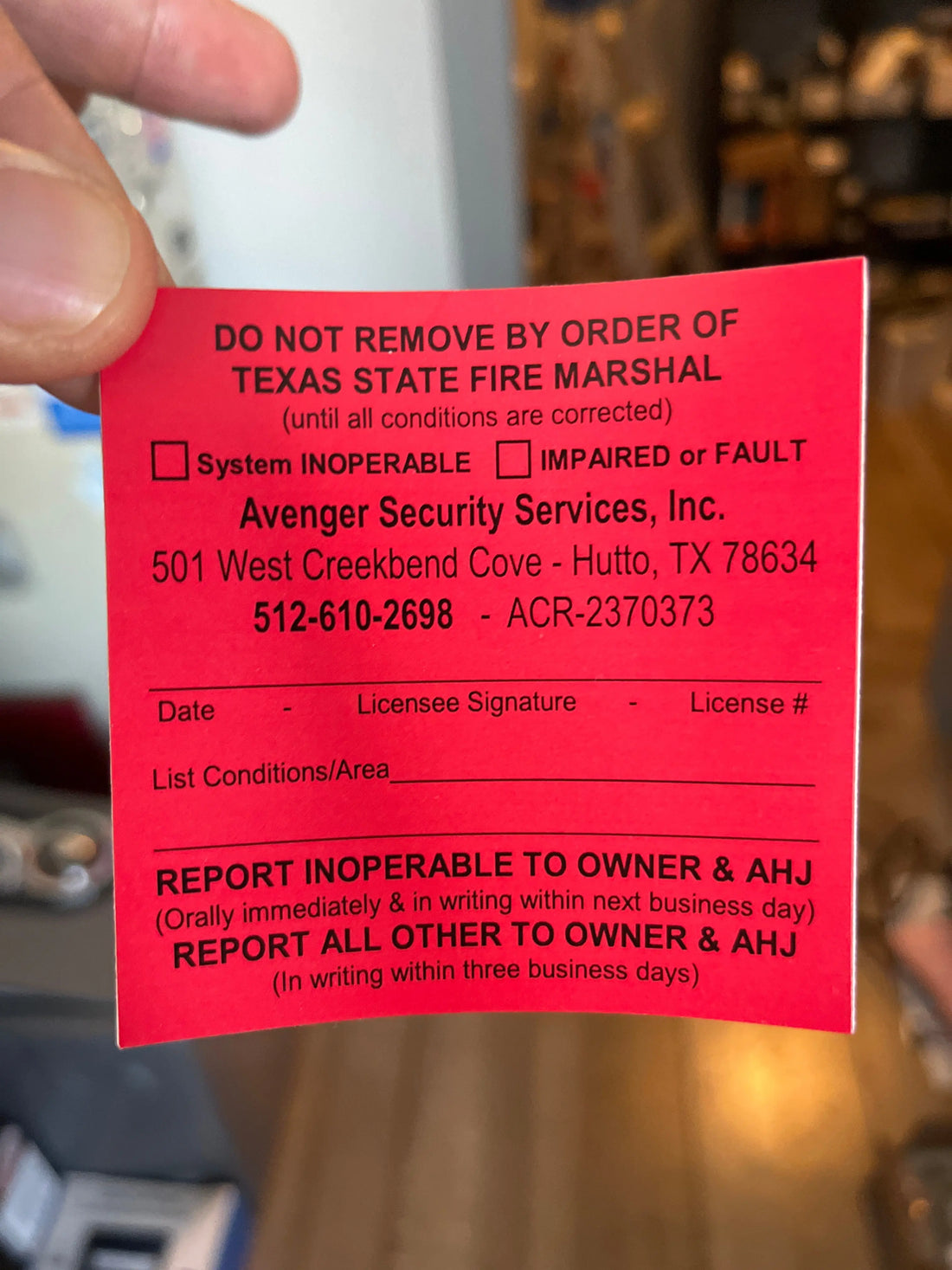A New Commercial Fire Alarm System Will Require Permit.
In the realm of commercial fire safety, the installation and operation of fire alarm systems are governed by a complex web of regulations and requirements. One critical aspect of this process is obtaining a commercial fire alarm system permit. This permit serves as an official authorization to install, maintain, and operate fire alarm systems within commercial properties. In this article, we delve into the intricacies of commercial fire alarm system permits, exploring their significance, the permitting process, considerations, and benefits.
Understanding Commercial Fire Alarm System Permits
A commercial fire alarm system permit is a formal approval granted by local authorities, typically the fire department or building department, allowing the installation, modification, or operation of fire alarm systems within commercial properties. These systems play a crucial role in early fire detection, alerting occupants, and facilitating effective emergency responses. The permit ensures that fire alarm systems are installed and maintained in compliance with applicable codes, standards, and safety regulations.
The Permitting Process The process of obtaining a commercial fire alarm system permit involves several steps, each designed to ensure that the fire alarm system meets the required safety standards:
Application Submission:
The property owner, tenant, or authorized representative initiates the process by submitting a permit application to the relevant local authority. This application typically includes details about the property, the type of fire alarm system being installed or modified, and the scope of work.
Plan Review:
Upon receiving the application, the local authority conducts a thorough review of the fire alarm system plans. This review assesses whether the proposed system adheres to the applicable fire codes, safety standards, and building regulations.
Compliance Verification:
During the plan review, authorities verify that the proposed fire alarm system aligns with relevant safety requirements. This includes confirming that the system layout, device placements, and wiring meet the specified standards.
Documentation:
Applicants may need to provide documentation such as equipment specifications, manufacturer details, and any certifications required for the fire alarm components.
Fee Payment:
Permit applications often involve a fee that covers the cost of plan reviews, inspections, and administrative processes. This fee varies based on the jurisdiction and the complexity of the project.
Inspection:
After approval of the plans, an inspection is scheduled to assess the actual installation of the fire alarm system. Inspectors ensure that the system is correctly installed, wired, and operational according to the approved plans.
Approval and Permit Issuance:
Upon successful inspection, the local authority grants approval for the fire alarm system. A formal permit is then issued, allowing the property owner or authorized personnel to operate and maintain the system.
Considerations and Benefits
Code Compliance:
Obtaining a commercial fire alarm system permit ensures that the system is installed and maintained in compliance with local fire codes and safety regulations. This is crucial for the safety of occupants and property.
Liability Mitigation:
Complying with permit requirements can mitigate legal and financial liabilities in the event of fire-related incidents. Properly permitted systems demonstrate due diligence in adhering to safety standards.
Effective Emergency Response:
Permitted fire alarm systems enhance emergency response by providing accurate information to first responders. This helps expedite evacuation and containment efforts.
Property Protection:
Permitted systems contribute to the protection of property and assets by facilitating early fire detection and minimizing potential damage.
Collaboration with Authorities:
The permitting process promotes collaboration between property owners, contractors, and local authorities, fostering a shared commitment to fire safety.
Challenges and Considerations
While commercial fire alarm system permits offer substantial benefits, certain challenges and considerations should be kept in mind:
Regulatory Variations:
Permit requirements can vary widely between jurisdictions, requiring applicants to stay informed about local codes and standards.
Compliance Complexity:
Navigating the complex web of fire codes, safety regulations, and building standards can be challenging, necessitating expertise or professional assistance.
Timelines:
The permitting process can take time, affecting project schedules. Delays may arise during plan reviews or inspections.
Documentation:
Applicants must ensure accurate and thorough documentation, including equipment specifications, manufacturer details, and certifications.
Commercial fire alarm system permits are more than bureaucratic requirements; they are a critical component of ensuring the safety and security of commercial properties and their occupants. By adhering to permit processes, property owners and stakeholders demonstrate a commitment to fire safety, compliance, and effective emergency response. These permits foster collaboration between property owners, contractors, and local authorities, ultimately contributing to a safer environment for all. As businesses continue to prioritize the well-being of employees, customers, and assets, the acquisition of commercial fire alarm system permits remains an integral step in safeguarding properties against the risks of fire-related incidents.

